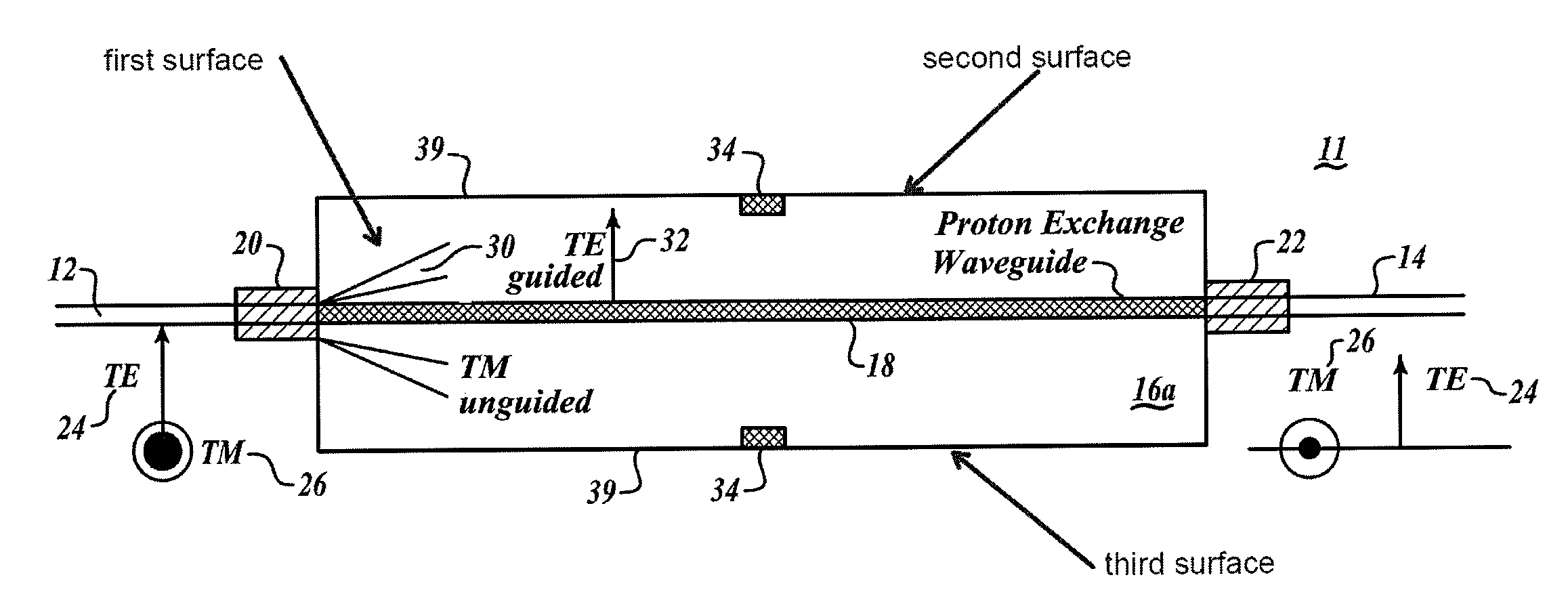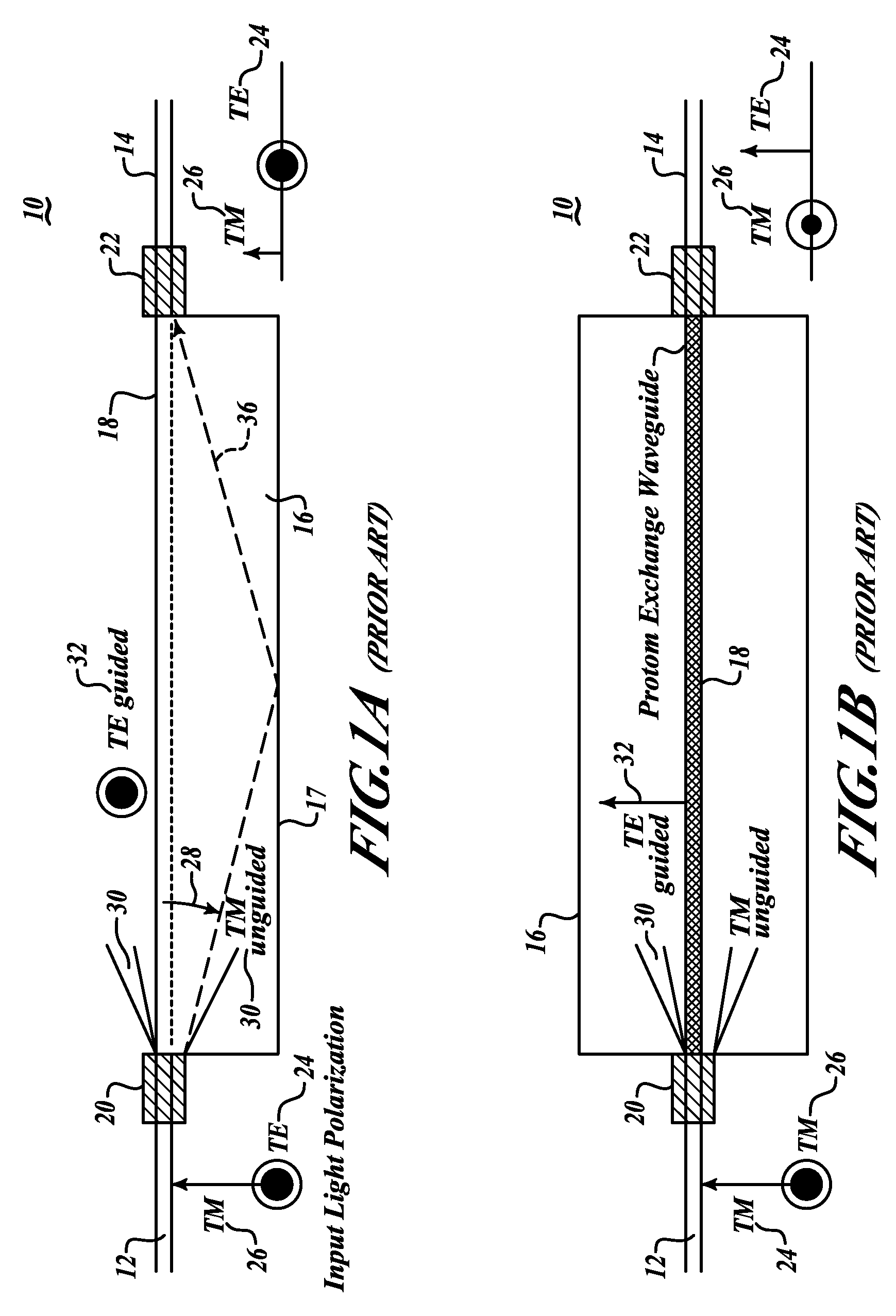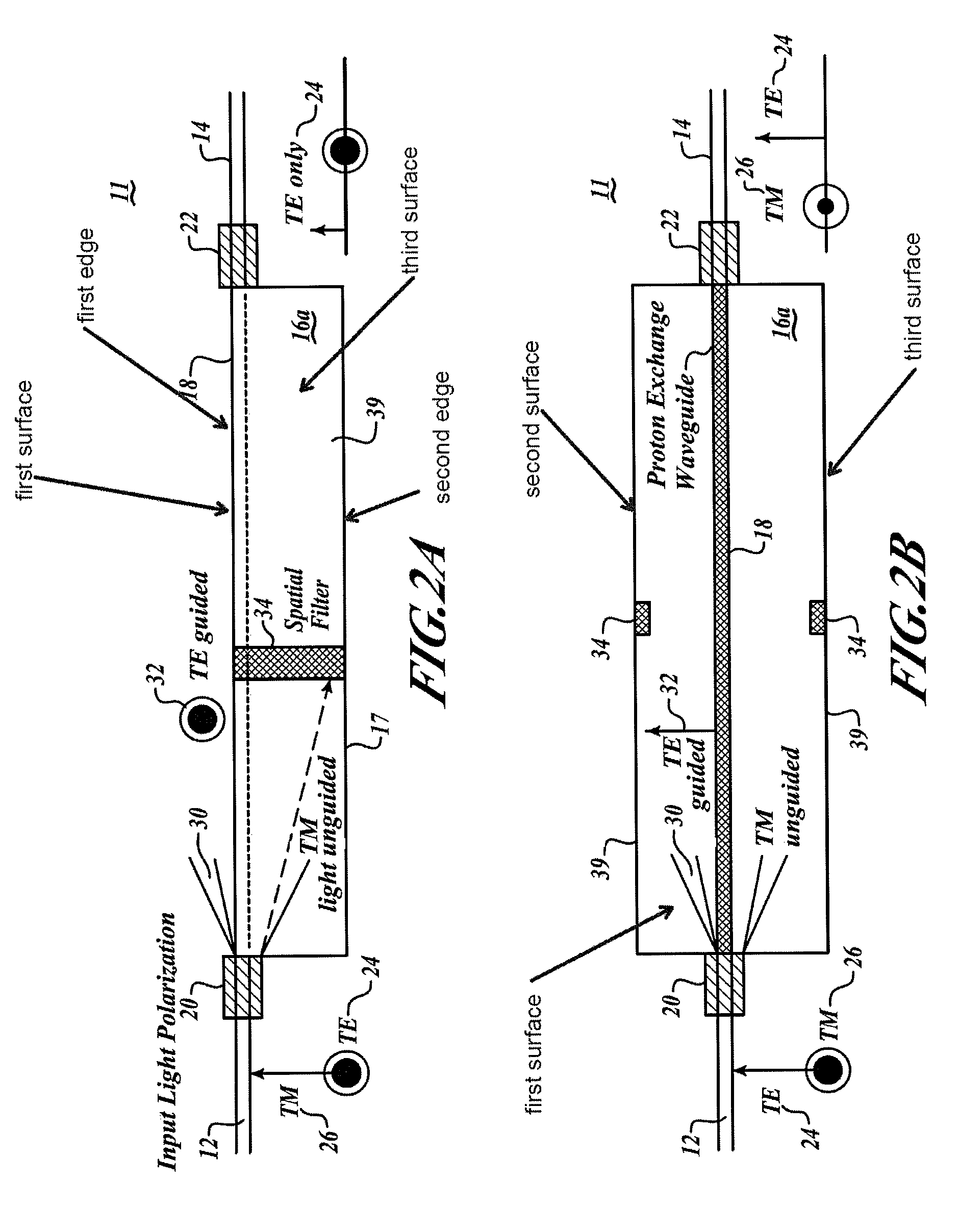Devices and methods for spatial filtering
a technology of spatial filtering and filters, applied in the direction of instruments, optical waveguide light guides, optical light guides, etc., can solve the problems of undesirable coupling, achieve the effects of improving the extinction ratio of the substrate, reducing the cross-coupling of unwanted modes of light, and improving the extinction ratio
- Summary
- Abstract
- Description
- Claims
- Application Information
AI Technical Summary
Benefits of technology
Problems solved by technology
Method used
Image
Examples
Embodiment Construction
[0015]FIGS. 2A, B show a proton exchange polarizer 11 with an integrated spatial filter 34 located in the substrate 16a. The substrate 16a couples a fiber 12 with ferrule 20 to fiber 14 to ferrule 22. The substrate 16a incorporates a proton exchange wave guide 18. The TM mode unguided light 30 propagates through the light conducting substrate 16a but is blocked by spatial filter 34 incorporated into the substrate 16a. The spatial filter 34 prevents reflected light from coupling back into the output fiber 14 by blocking the propagation of the light wave. The barrier, or the spatial filter 34, may be advantageously made by a number of processes including physically depositing the spatial filter 34 into the substrate 16a. The substrate may be saw-cut to create a void in the substrate 16a impeding the propagation of the unguided TM mode light 30. The side may be diamond machined, etched, micro-machined or laser-machined. Alternatively, the surface may simply be scratched or similarly da...
PUM
 Login to View More
Login to View More Abstract
Description
Claims
Application Information
 Login to View More
Login to View More - R&D
- Intellectual Property
- Life Sciences
- Materials
- Tech Scout
- Unparalleled Data Quality
- Higher Quality Content
- 60% Fewer Hallucinations
Browse by: Latest US Patents, China's latest patents, Technical Efficacy Thesaurus, Application Domain, Technology Topic, Popular Technical Reports.
© 2025 PatSnap. All rights reserved.Legal|Privacy policy|Modern Slavery Act Transparency Statement|Sitemap|About US| Contact US: help@patsnap.com



